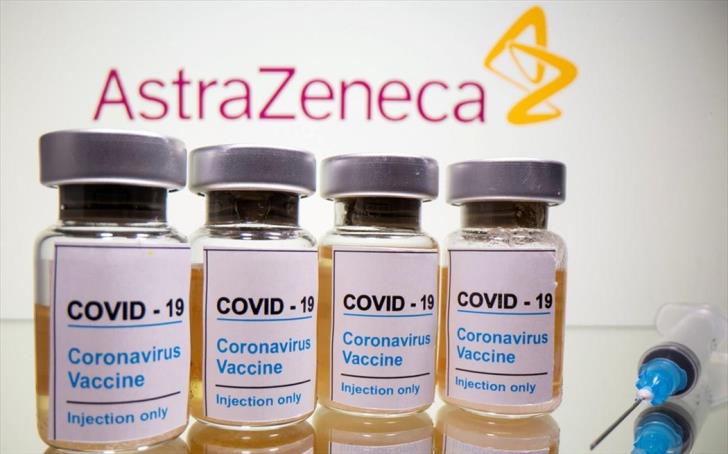EMA’s safety committee (PRAC) has concluded that people who have previously had capillary leak syndrome must not be vaccinated with Vaxzevria (formerly COVID-19 Vaccine AstraZeneca). The Committee also concluded that capillary leak syndrome should be added to the product information as a new side effect of the vaccine, together with a warning to raise awareness among healthcare professionals and patients of this risk.
The Committee carried out an in-depth review of 6 cases of capillary leak syndrome in people who had received Vaxzevria. Most of the cases occurred in women and within 4 days of vaccination. Three of those affected had a history of capillary leak syndrome and one of them subsequently died. As of 27 May 2021, more than 78 million doses of Vaxzevria had been administered in the EU/EEA and the UK.
Capillary leak syndrome is a very rare, serious condition that causes fluid leakage from small blood vessels (capillaries), resulting in swelling mainly in the arms and legs, low blood pressure, thickening of the blood and low blood levels of albumin (an important blood protein).
Healthcare professionals should be aware of the signs and symptoms of capillary leak syndrome and of its risk of recurrence in people who have previously been diagnosed with the condition.
People who have been vaccinated with Vaxzevria should seek immediate medical assistance if they experience rapid swelling of the arms and legs or sudden weight gain in the days following vaccination. These symptoms are often associated with feeling faint (due to low blood pressure).
The PRAC will continue to monitor for cases of the condition and will take any further actions necessary. The PRAC has also asked AstraZeneca, the company marketing Vaxzevria, for further information about a possible mechanism for the development of capillary leak syndrome following vaccination.
Information for patients
- A very small number of cases of capillary leak syndrome have occurred in people who received Vaxzevria (formerly COVID-19 Vaccine AstraZeneca).
- You must not have Vaxzevria if you have previously experienced capillary leak syndrome.
- Capillary leak syndrome is a serious condition. The chance of the condition occurring is very low, but you should still be aware of the symptoms so that you can get prompt medical treatment to help recovery and avoid complications.
- You must seek medical attention immediately if you have the following symptoms in the days after vaccination, which may occur together with feeling faint (due to low blood pressure):
- rapid swelling of the arms and legs
- sudden weight gain.
- Speak to your healthcare professional or contact your relevant national health authorities if you have any questions about the rollout of the vaccine in your country.
Information for healthcare professionals
- EMA has reviewed cases of capillary leak syndrome in people who received Vaxzevria (formerly COVID-19 Vaccine AstraZeneca).
- Healthcare professionals must not give Vaxzevria to anyone who has a history of capillary leak syndrome.
- Capillary leak syndrome is a very rare, serious condition, which can be fatal if untreated. It causes fluid leakage from the capillaries, resulting in oedema mainly affecting the limbs, hypotension, haemoconcentration and hypoalbuminaemia.
- Healthcare professionals should be aware of the risk of recurrence of capillary leak syndrome in people who have previously experienced the condition.
- Healthcare professionals should be aware of the signs and symptoms of capillary leak syndrome. Patients with an acute episode of capillary leak syndrome following vaccination require prompt treatment and may require continuous specialist monitoring and intensive supportive therapy.
- Healthcare professionals should tell people receiving the vaccine that they must seek medical attention if they have the following symptoms in the days after vaccination, which may be associated with feeling faint (due to low blood pressure):
- oedema in the extremities
- sudden weight gain.
- The product information will be updated to include a contraindication in people with a history of capillary leak syndrome. The condition will also be listed as a side effect with an unknown frequency.
A direct healthcare professional communication (DHPC) will be sent in due course to healthcare professionals prescribing, dispensing or administering the vaccine. The DHPC will also be published on a dedicated page on the EMA website.
More about the medicine
Vaxzevria (formerly COVID-19 Vaccine AstraZeneca) is a vaccine for preventing coronavirus disease 2019 (COVID-19) in people aged 18 years and older. COVID-19 is caused by SARS-CoV-2 virus. Vaxzevria is made up of another virus (of the adenovirus family) that has been modified to contain the gene for making the S protein from SARS-CoV-2. The vaccine does not contain the virus itself and cannot cause COVID-19.
The most common side effects are usually mild or moderate and improve within a few days after vaccination.
More about the procedure
This review was carried out in the context of a safety signal. A safety signal is information on a new or incompletely documented adverse event that is potentially caused by a medicine such as a vaccine and that warrants further investigation.
The review was carried out by EMA’s Pharmacovigilance Risk Assessment Committee (PRAC), the Committee responsible for the evaluation of safety issues for human medicines. The PRAC’s recommendations will be submitted to EMA’s human medicine committee, CHMP, for endorsement.
EMA’s scientific assessment underpins the safe and effective use of COVID-19 vaccines. EMA’s recommendations are the foundation upon which individual EU Member States will design and implement their own national vaccination campaigns. These may differ from country to country depending on their national needs and circumstances, such as infection rates, priority populations, vaccine availability and hospitalisation rates.






